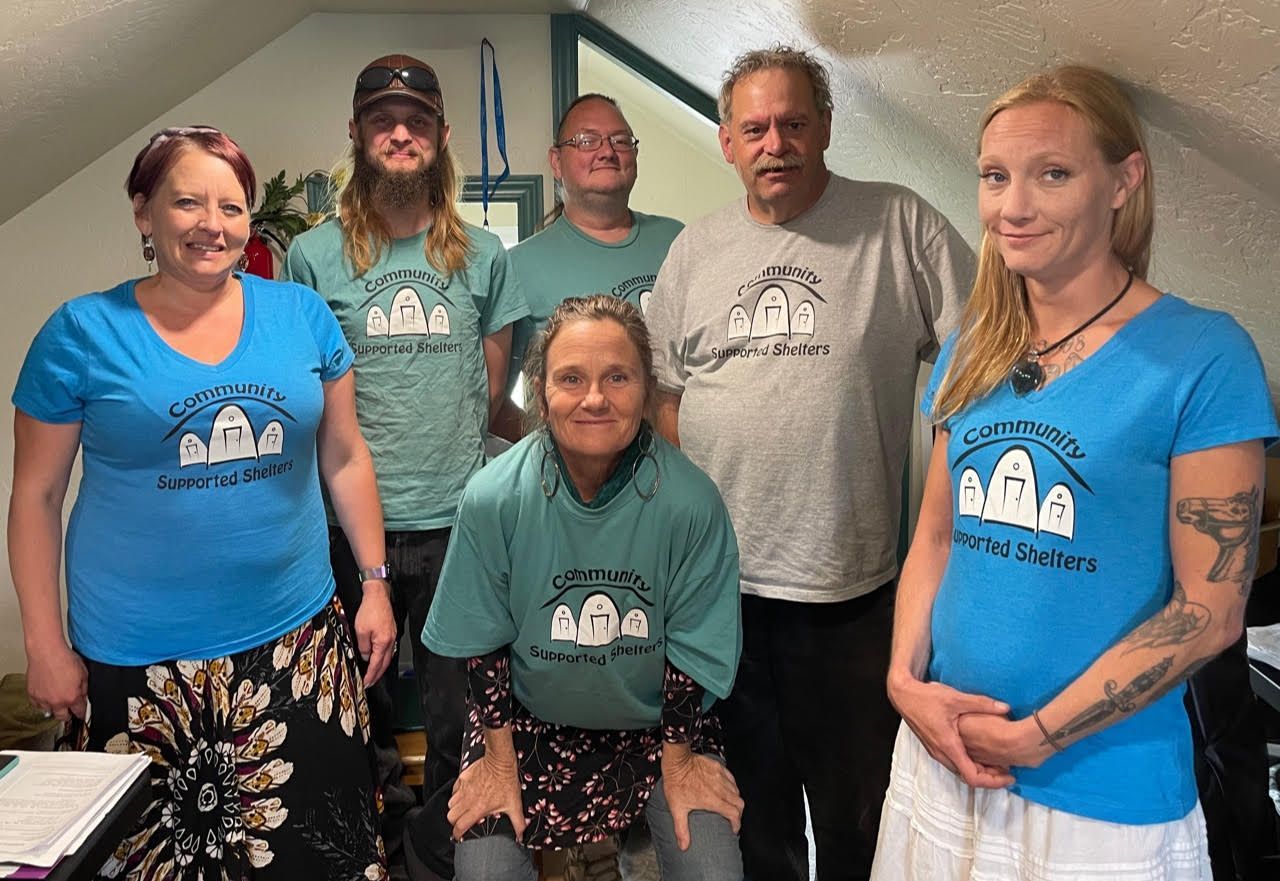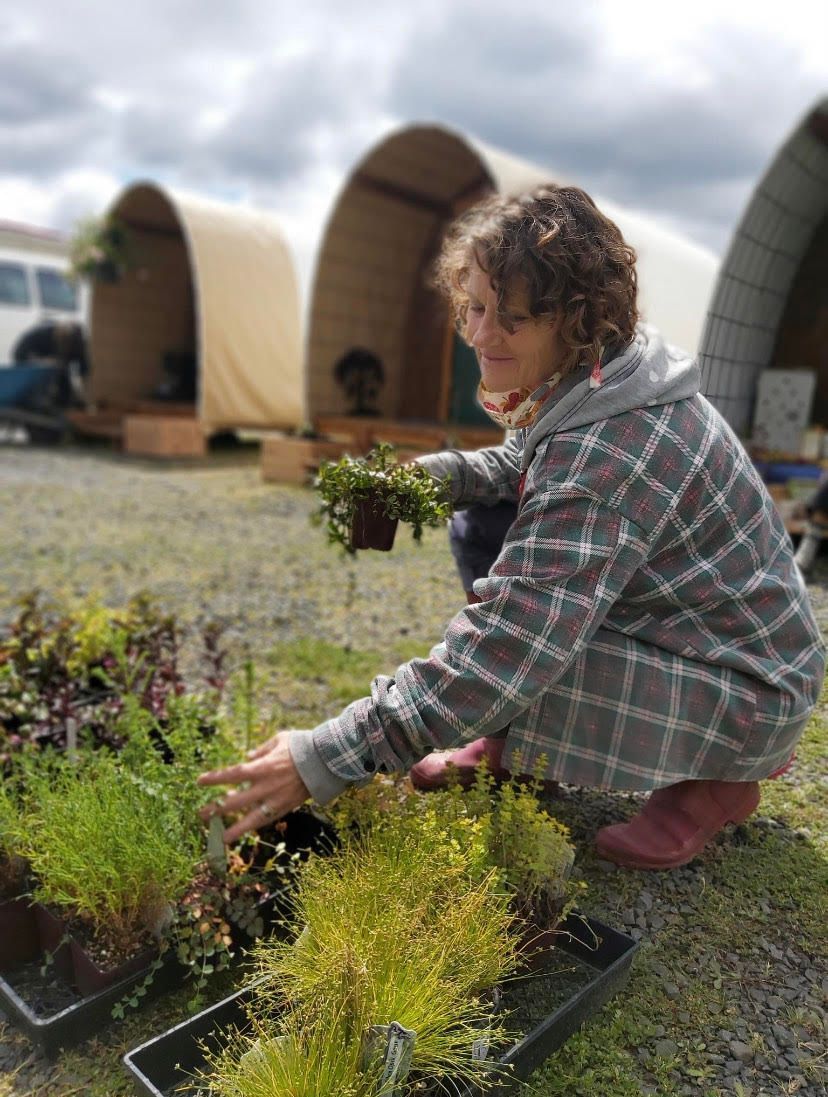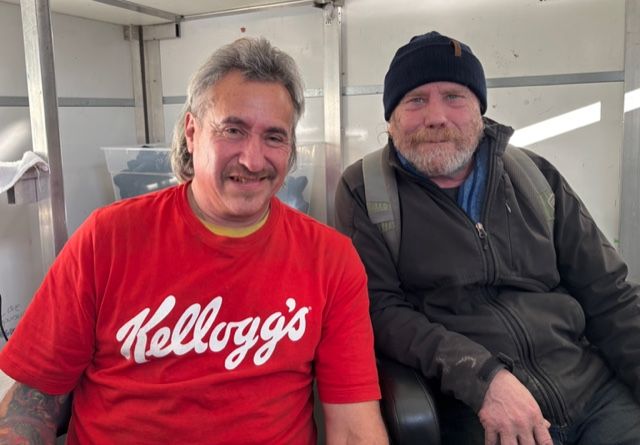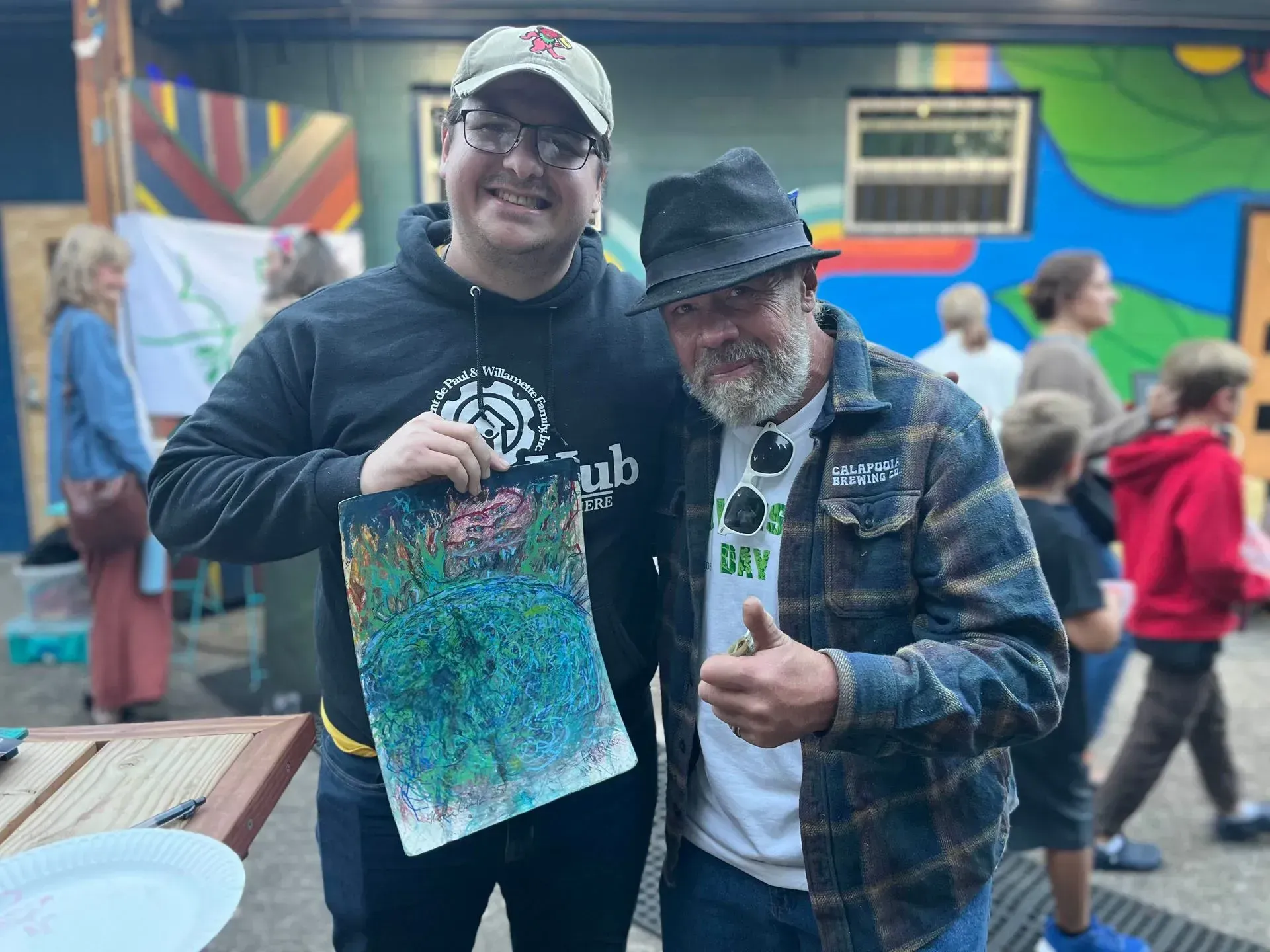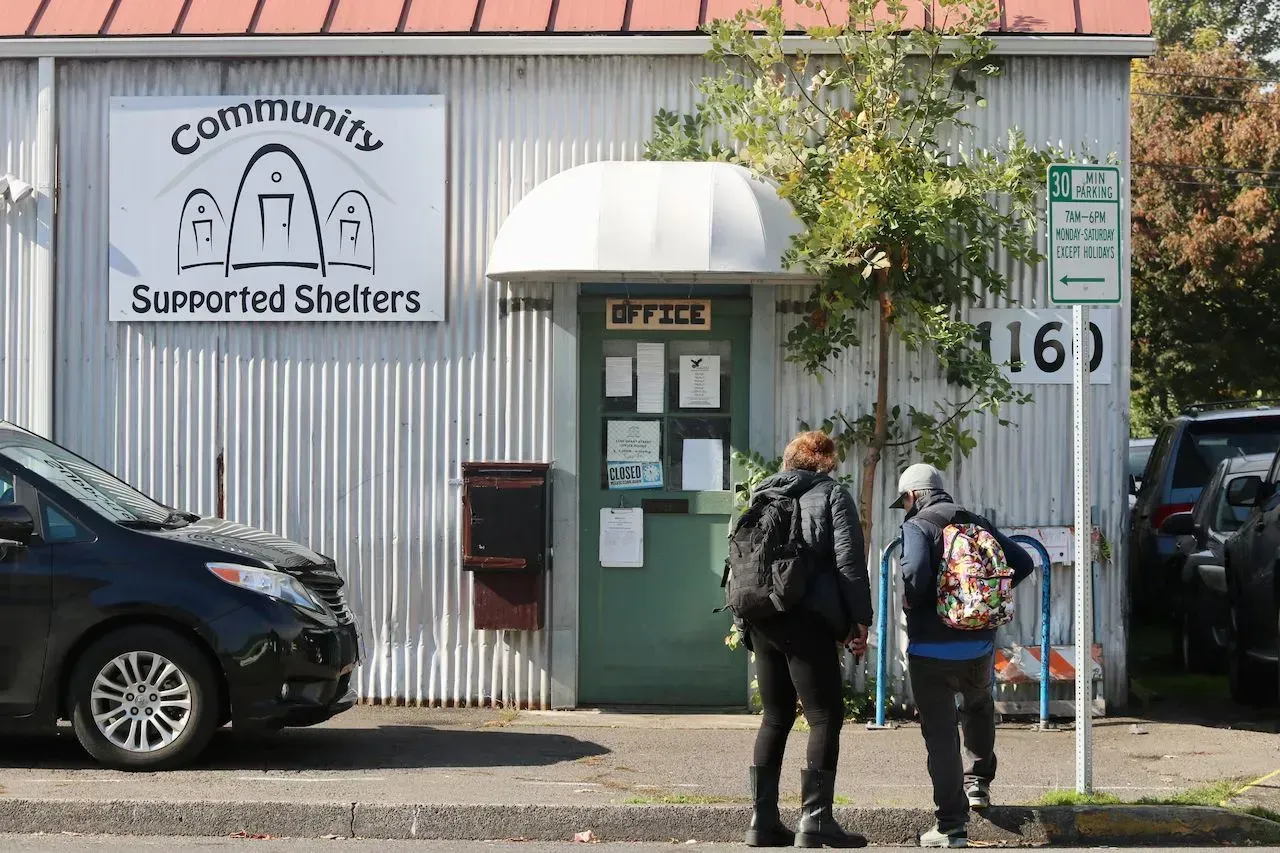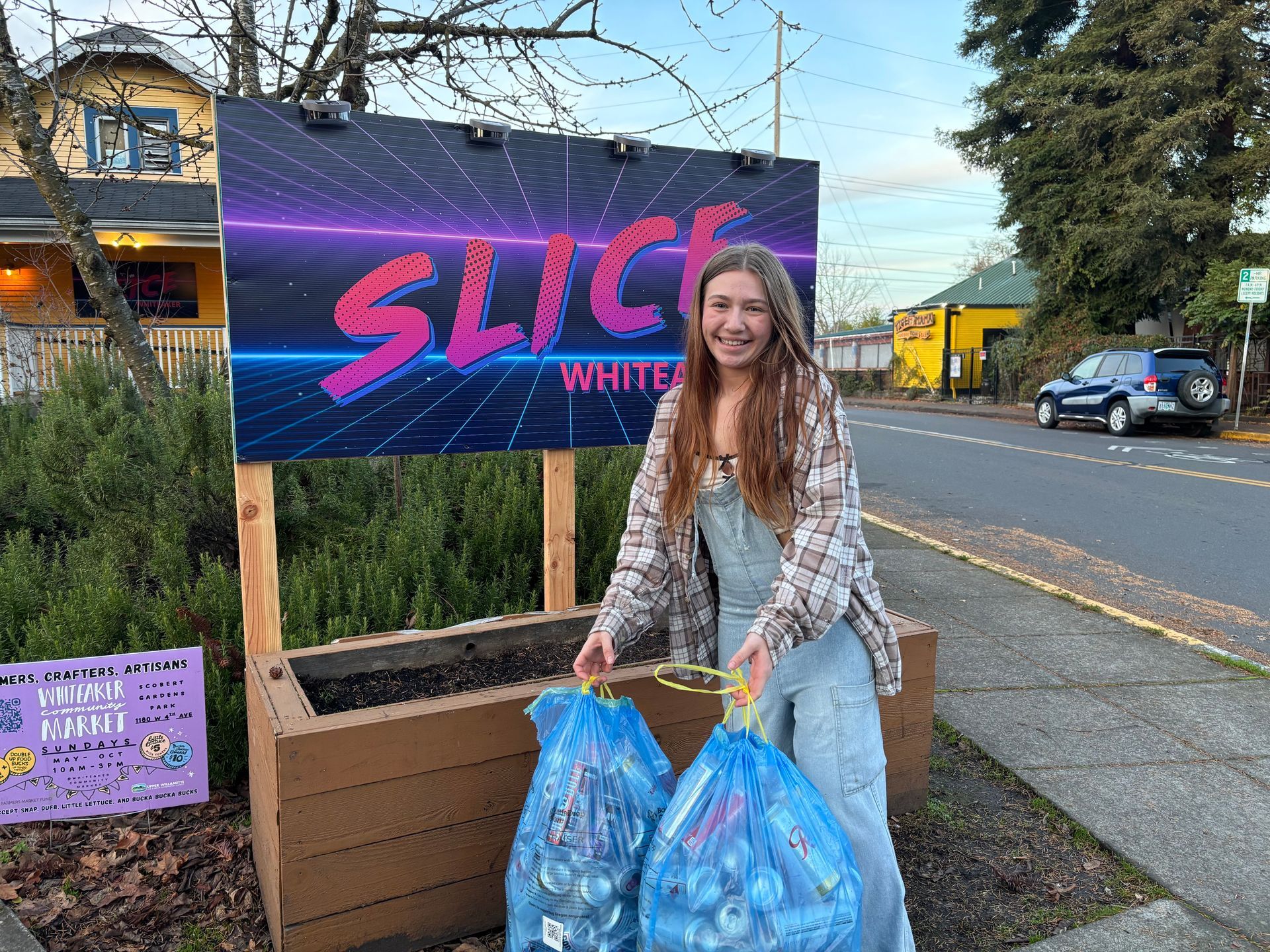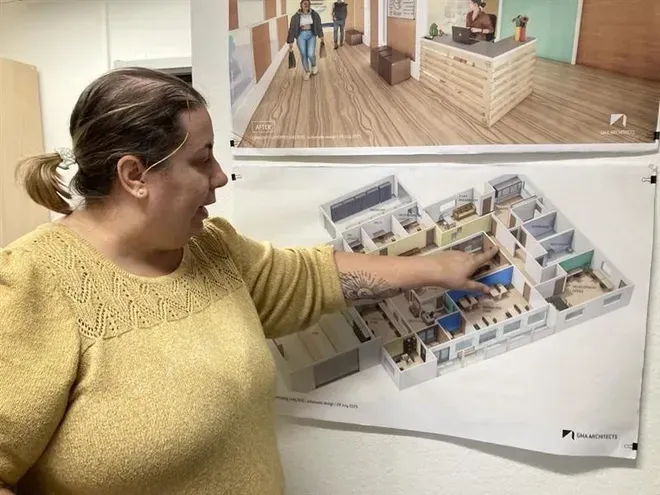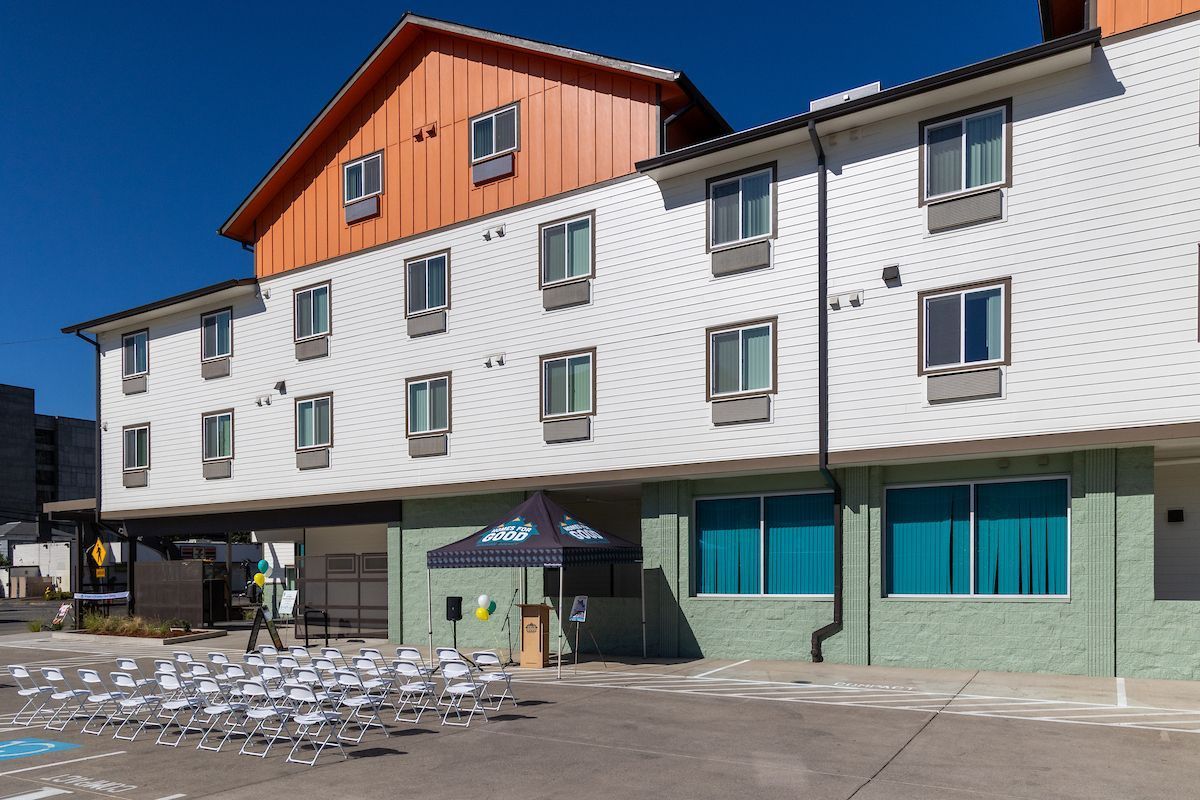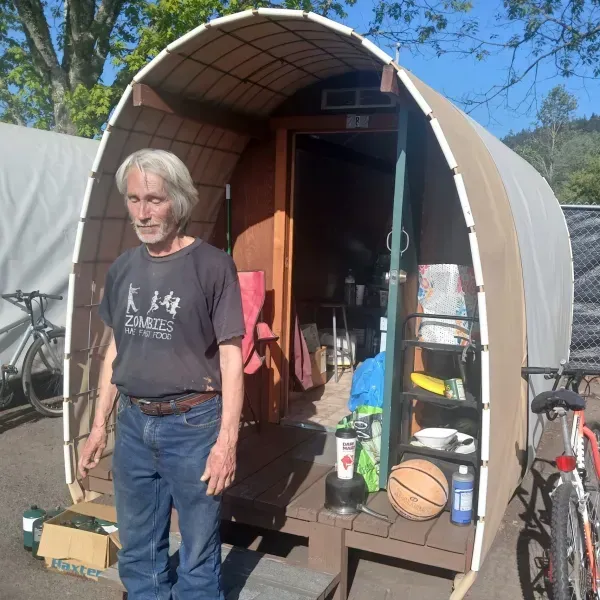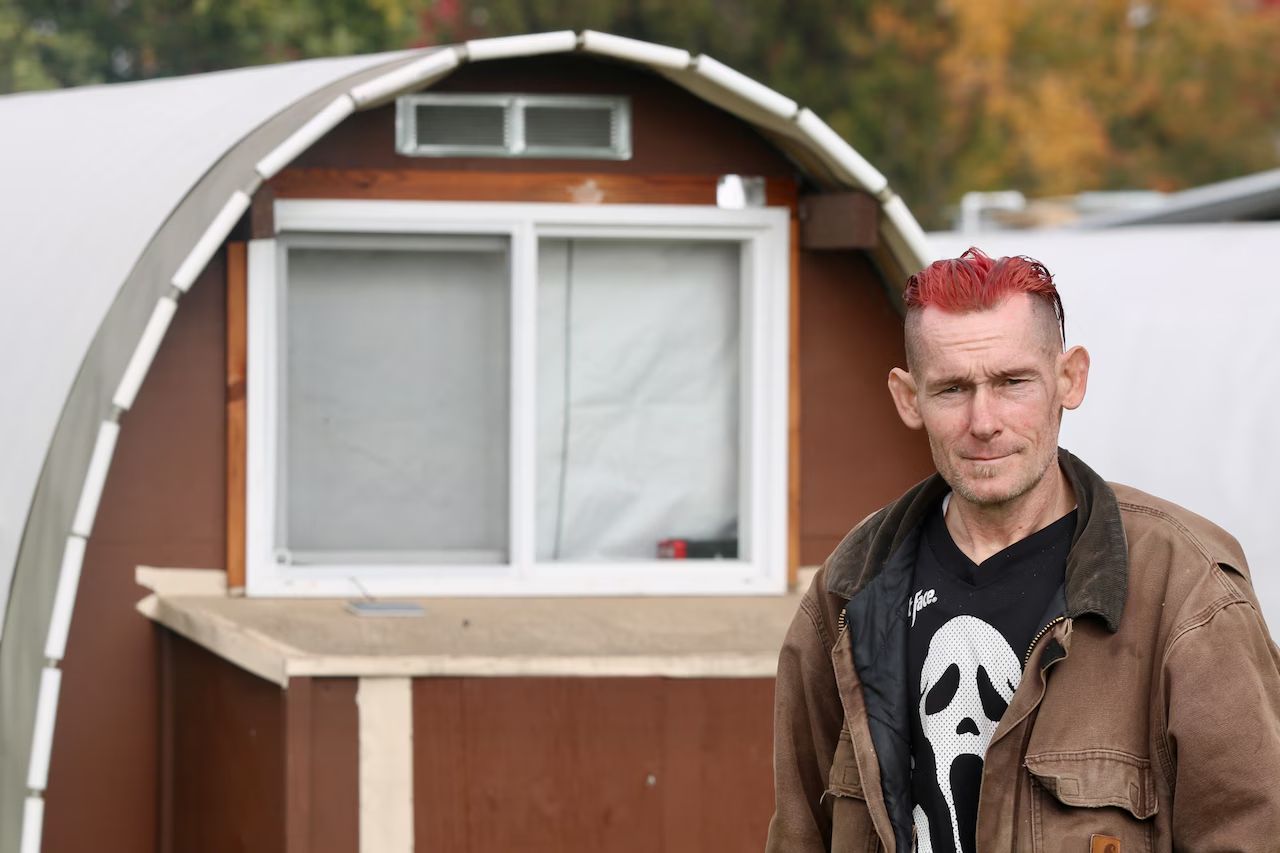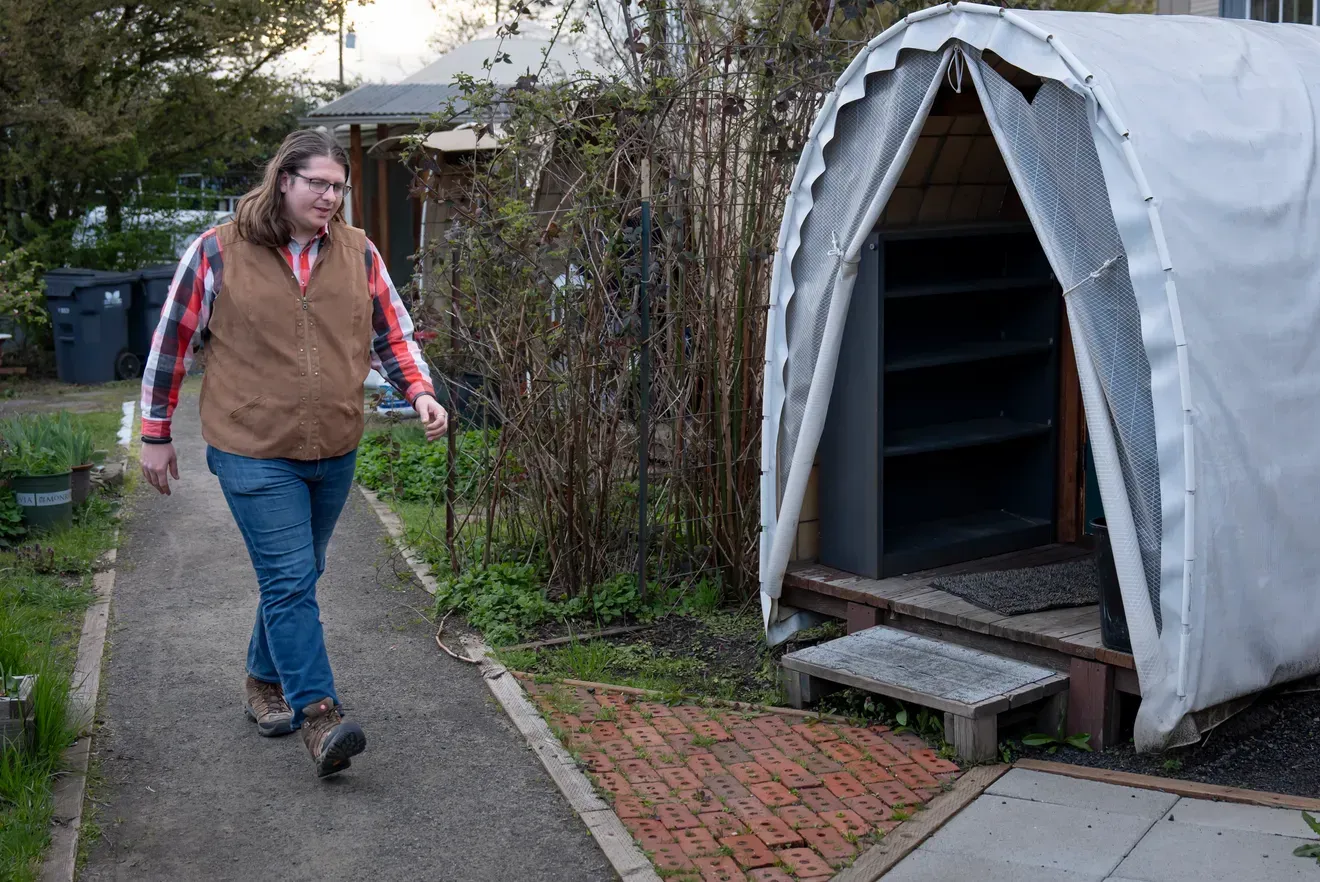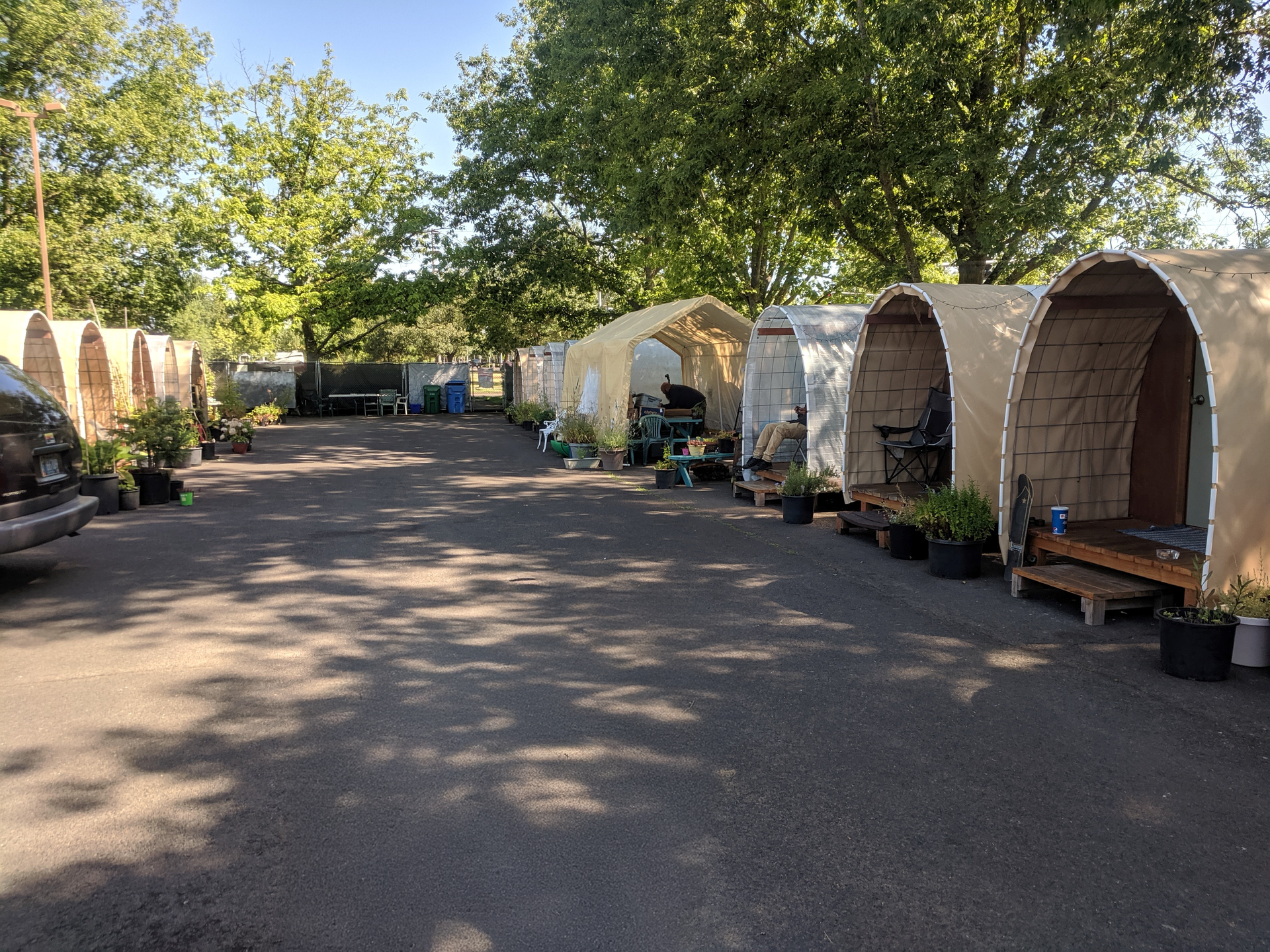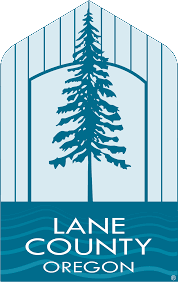Community Supported Shelters has a total of 147 Huts in its eight Safe Spots, two Microsites, and three Mini-Microsites. As of early July, 75 of those spots were filled. Why so many still not occupied?
“We’re not trying to warehouse people,” says William Chapple. “We’re trying to get them to achieve community values where they actually care about themselves and the space around them and the people that they’re living with.” Communities take time.
“Instead of screening them out, it’s screening them into the correct role,” says Ryker Miller, another Peer Support Worker who lived in the Vets Camp Safe Spot for a little over a year before being asked to become a staff member.
Almost every applicant who goes through the screening process is accepted into the program.
“We’re really trying to get clients in” says Jeff Howard, another Peer Support Worker and former Safe Spot resident. He moved out of the Expressway Camp into housing about four years ago. He’s kept in touch with CSS since then and stopped by the CSS office earlier this year to volunteer. But instead he was offered a staff position. (“They were insisting on it,” he says.) Kristin Fay says she has come to rely heavily on Jeff during the prescreening process.
That process is very thorough and has become more so with the recent addition of the six new camps, where the communities are being built from scratch. In those camp, campers are added gradually so bonds can be formed and a camp-specific culture can be established.
Prospective clients fill out an application and sign on to a “wait list” at the CSS office. They are expected to check in every week. When clients reach the top of the list, the peer workers start “prescreening”—gathering information about them, such as whether or not they check in regularly or if they have previous experience with the CSS program. Service Navigators pull information from the county’s Homeless Management Information System, which has information on the “characteristics and service needs” of people experiencing homelessness and poverty, and pass that on to the peer workers, who compile a profile of every applicant.
That profile informs a screening interview that is the next step of the process.
But sometimes it’s a challenge tracking people down who often don’t have reliable contact information. “Sometimes, you follow bread crumbs,” Jeff says. But he is persistent because, he says, “I know what it was like for me. I didn’t have a phone. I used White Bird as a message service.”
And sometimes applicants just don’t show up for the interviews. The goal is to screen about nine people per week. In a recent period of a month, 40 screenings were scheduled, but seven people didn’t show.
Ryker says the interviews last about an hour and a half. The first half hour or so is spent talking about the applicant. “We’re just going to go over everything—there are no limits. If you’ve got stuff that’s happened in your history, we’re going to need to know that to try to get you moving forward.” The rest of the interview is spent talking about the CSS program and its expectations and rules. “The whole point is to try to get people to connect and to get with the program.”
Helping place residents is only part of the Peer Support Workers relationships with them.
“Our job is to help the clients,” Jeff says, “whatever that takes—guidance, advice, talking about our personal experiences and what happened to us.”
Ryker agrees: “Most of it is just connection, trying to build a relationship with the client, trying to support them in their moving forward.”
“We’re for the most part the people who are on the ground,” William says. “The campers see us most often. We listen to their trials and tribulations. We don’t handhold, but we do care and support so that people can get their full story out because once we know somebody’s whole story we can make better decisions for helping them.”
The Peer Support Workers attend weekly meetings at the camps, usually with the Camp Facilitator from their team. They also come to the camps for non-mandatory “hang out” sessions when they are available to the campers. The peer workers are still working on other approaches to deepen the connection to campers, especially those who are less likely to show up for the informal sessions.
“It’s definitely an ever evolving job,” Ryker says.
It would be hard to imagine better advocates for the CSS approach to building communities than these three, who have experienced how life-changing the program can be.
“This program has given me something just fantastic,” Ryker says. “Just how understanding these people have been in giving me a chance to just be myself and work and exist. And, honestly, all that is worth more than its weight in gold. I know I’m not perfect by any means. I’ve got a lot to work on myself. Life is still rough, and I’m still looking around and trying to figure out where I’m going from here. But it’s given me a peace of mind.”
He was surprised to be asked to be a Peer Support Worker and took a week before deciding to do it. Even though he’s now being paid, he looks at this work as a way of giving back. “Knowing that somebody else out there is in kind of the same situation I was. Work here can be difficult at times, but I want to be here. I know they need me.”
“CSS absolutely helped me in so many ways,” William says. “The absolute stability of having somewhere to be has been a saving grace. I used to, on a regular basis, just look around and say, ‘I could just step in front of this bus and it would be all over.’ And I don’t do that as much now simply because of CSS.”
William has served in a variety of volunteer leadership roles over about four years in various CSS camps. “I am a walking encyclopedia of all things CSS,” he says. “Since I can speak [to campers] from each of the levels I’ve experienced, it gives a little more gravitas to what I’m saying.”
Jeff is looking forward to spending less time in the office doing screening research on a computer and more time with campers. “I like getting out into the field and meeting clients one-on-one and being part of the work parties. Work parties are cool. They give you a chance to meet clients on a different level.”
“We work for the clients,” Jeff says. “We’re employees of CSS but we work for the clients. We try to guide them into a better situation. It’s really all of our goals for these people to be in a better situation when they leave.”


